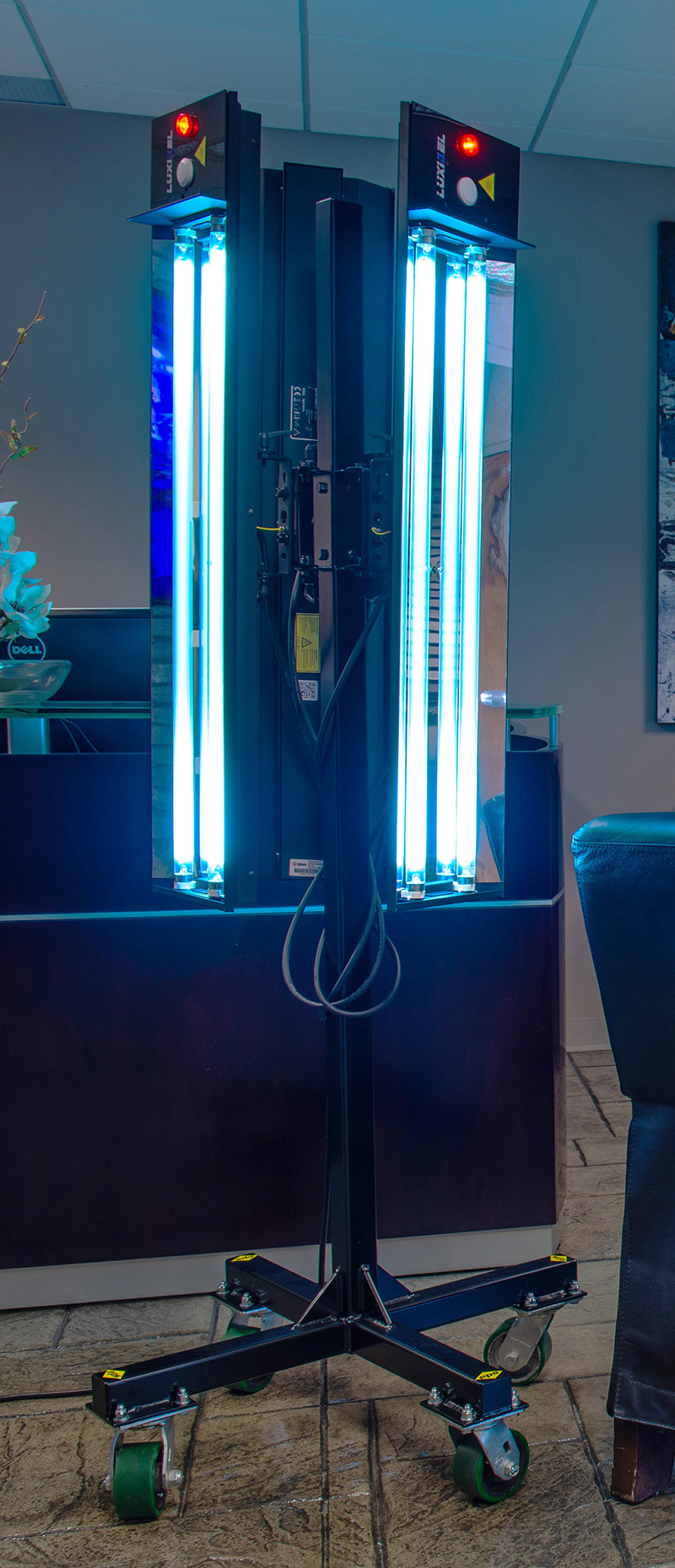
“You’re just seeing the tip of the iceberg,” Mark Dodd of Dodd Technologies says of this pandemic. He makes the case that Covid-19 is going to be “a 9/11 moment.” “Vaccines aren’t 100 percent. Viruses mutate. There’s always going to be a Covid-something; and when there isn’t, there is the flu. It’s all going to come down to how secure can you make the audience feel. We have to build confidence that our venues and events are safe.” A whole new set of technologies that go beyond what we’re seeing now to create a safe environment for bands and audiences will be part of it all. That’s where Dodd Technologies hopes to step in with its new company, Vero Shield, which will offer direct UV lights, System3 24/7 anti-microbial surface protection, and UV-C air filtration, among other products. “But we’re not a cleaning company — we’re in the people business.”
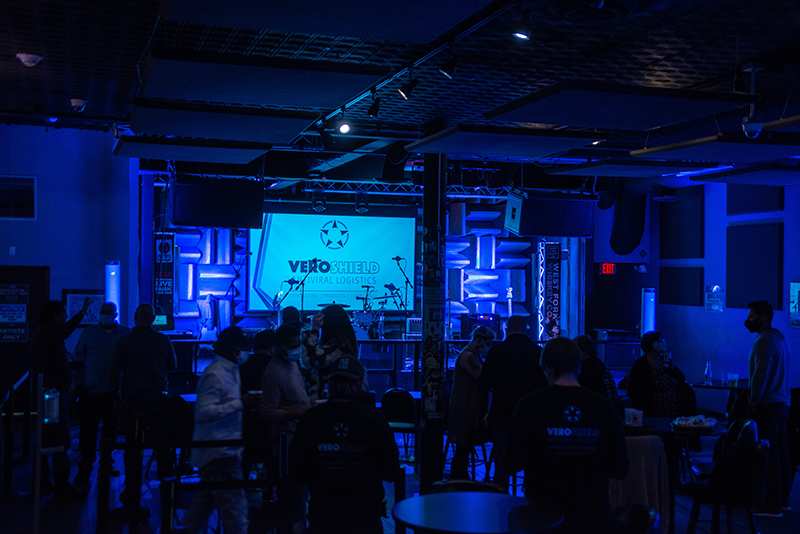
“Had to Fight On”
As 2019 was drawing to a close, Dodd had the opportunity to sell off their Tyler Truss division. He says he wasn’t actively looking to sell, but when local entrepreneur Glenn Cleland made an offer, Dodd listened. “At my age, I was thinking of letting some things go — I love what I do; I just don’t want to die doing it,” he says with a laugh. (For a feature on Tyler Truss’ new owners, see PLSN, May 2020.) As it was, 2019 was an exceptionally strong year, and 2020 was looking even better. Then the pandemic “certainly changed all of that. My wife Wanda and I had to look at our employees, who have really become family, and we quickly decided we couldn’t just wrap it up. We had to fight on.”
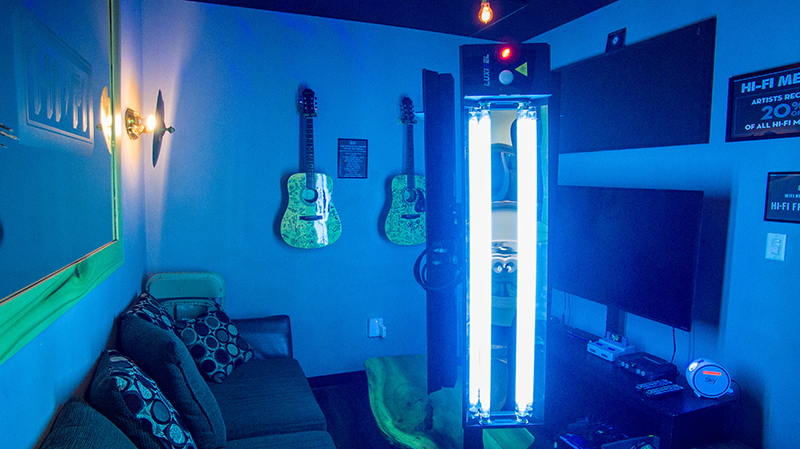
Dodd saw early on that this was going to be a much longer-term ordeal than just staying at home for four weeks. “If we want to go back doing what we love, we have to figure it out ourselves,” he says. “The government is not going to help us.” Hence Vero Shield. “We saw that we had decades in live entertainment and getting people together is what we do. So, the question became what can we do to make it safe for audiences to return?” The approach is not stop-gap, not a “Band-Aid” to just make it through this crisis: He sees a long-term need.
They’ve already been in talks with Live Nation and Pearl Jam’s people, specifically, touring consultant Sunil Sinha. “He’s pragmatic and has the ear of the artists, and he and others, like Klance Unlimited in St. Louis, are seeing how Vero Shield could lessen the risk of everything from the busses to the stages. Vero Shield has been working with these and others, leaning on them as consultants and feeding possibilities to them.” Included in that sphere of influence in finding a path to the new normal is Pete Beattle of NPB Companies, Inc., a touring and personal security service, and Dan Buck, owner/partner of Big Sports Properties.
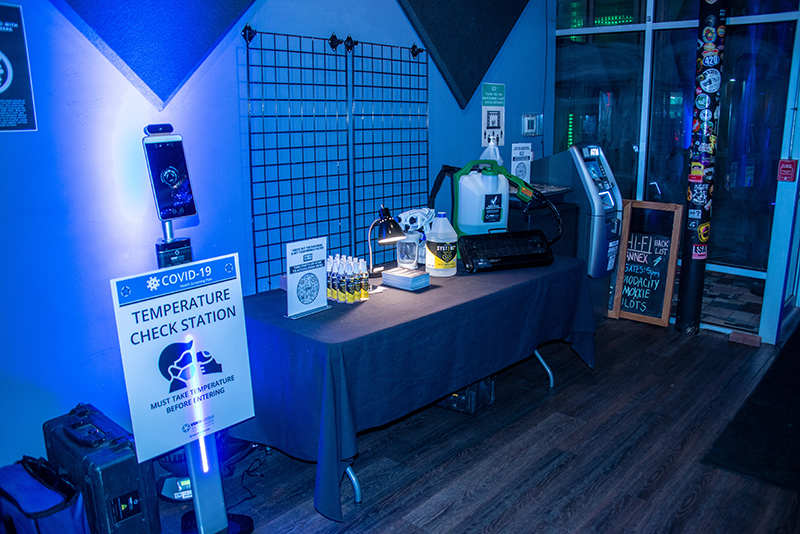
“There are a lot of products out there that can help move the industry forward safely, some of which we distribute and some of what we manufacture,” Dodd explains. A key part of Vero Shield’s offering is System3, an extended life disinfectant, sanitizing solution. “With household products like Lysol, Clorox etc., you can clean a surface, but the moment it’s touched, it’s re-infected. The cost issue for venues trying to keep up with that reality is not sustainable. But System3 is invisible and, after it’s applied, continues to protect. It kills germs on items like handrails, door handles and counters for 30 days — up to 120 days if the surface is subject to lower abrasion rates.”
UV-C disinfection equipment will become part of the HVAC systems. “The most difficult aspect to control is the quality of the air. UV-C is well-proven technology that has been around for over a hundred years. We’ve been building industry-specific products, and we can literally take an environment and flood it with sanitized air.” For sure the pencils are being sharpened and some serious math is being done — but if the ability to do this in a medium-sized venue is tricky, it’s certainly possible. “Theoretically, 20 medical air cleaning units could clean 3.6 million cubic feet an hour, which would make it safe for all in the venue, not just artists,” Dodd says. Working in tandem with the venue’s HVAC, adding 20 well-placed units that can take care of 180,000 cubic feet of air per hour per unit “will go a long way in creating a safe environment.”
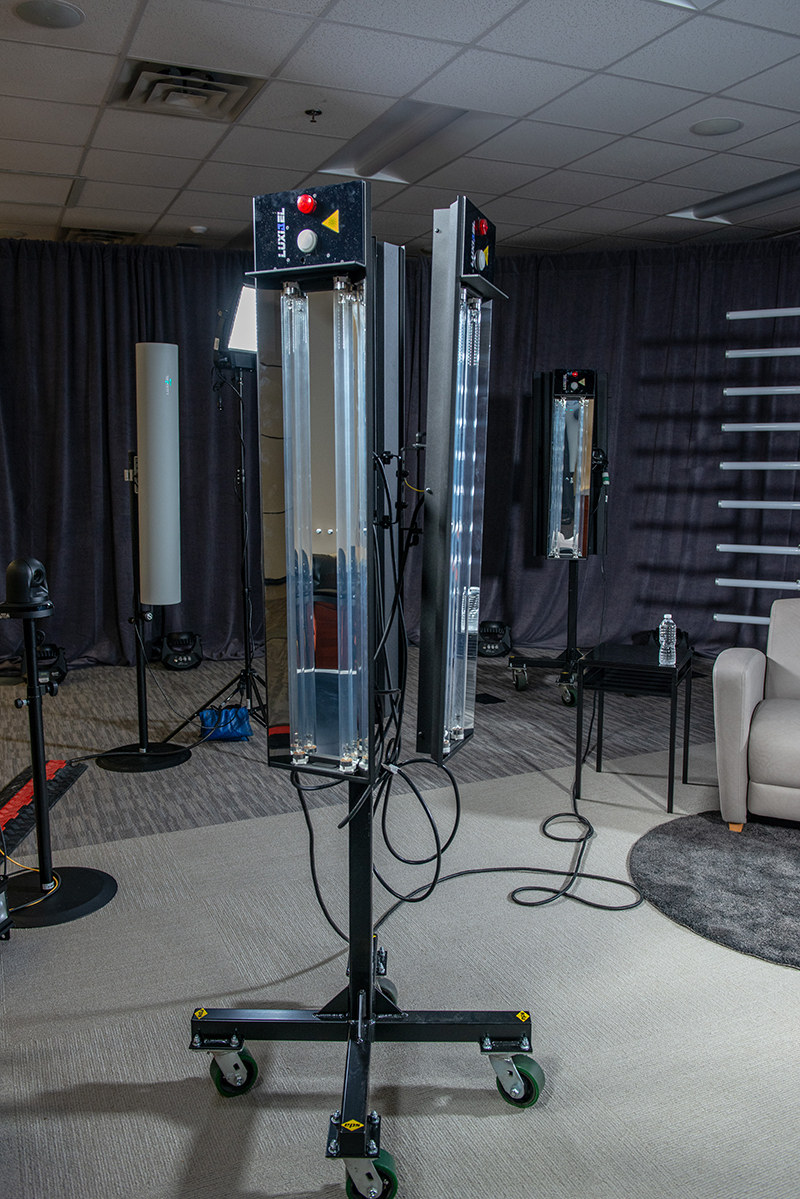
And get used to seeing UV Lighting Sanitation at gigs, even implemented into the rigs. “You get everyone off stage, you pull the curtain, you turn it on for 15 to 20 minutes, and anything the light strikes is safe,” Dodd says. “Direct UV high output fixtures are damaging to the eyesight and skin, so you wouldn’t want to leave them on with crew or artists present. But in a few minutes between sets or acts would be all you need to disinfect. Additionally, you can literally have portable units on your tour — on buses, green rooms, everywhere.” The combination of UV Lighting and UV-C air could make the air inside better and safer than the air outside.
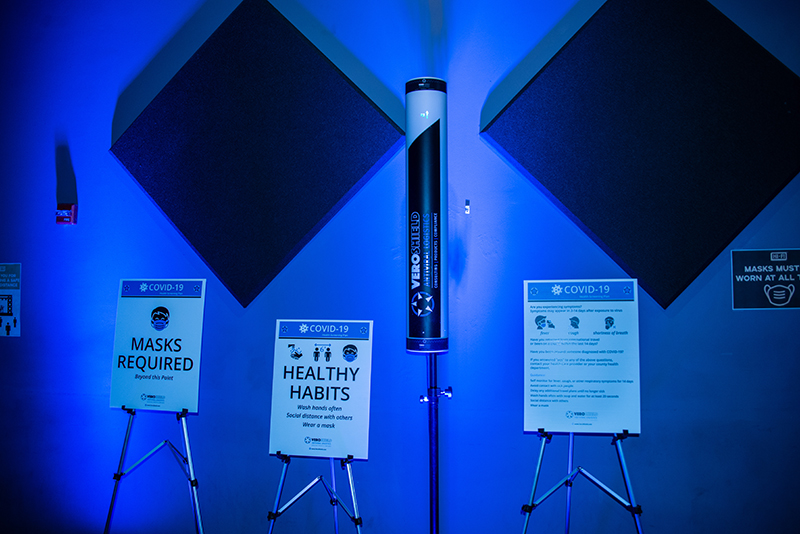
Personal Space/Personal Rights
As for any Brave New World tradeoffs between event safety and concerns about loss of privacy as venue management is tasked with contact tracing duties and, conceivably, information gathering on vaccinations and antibodies, Dodd expects some type of rational balance to prevail, with venues keeping data only long enough to assure there was no outbreak, and music-lovers seeing this new “normal” as necessary to seeing live music. “We will set up temperature/masks check stations at the entrances to do initial screenings for everyone — staff, artists, crew, and attendees,” he explains. “If anyone does not pass the initial screening, they are referred to the on-site medical staff for further screening/evaluation prior to admittance.” If they don’t pass that, they will be refunded and asked to leave.
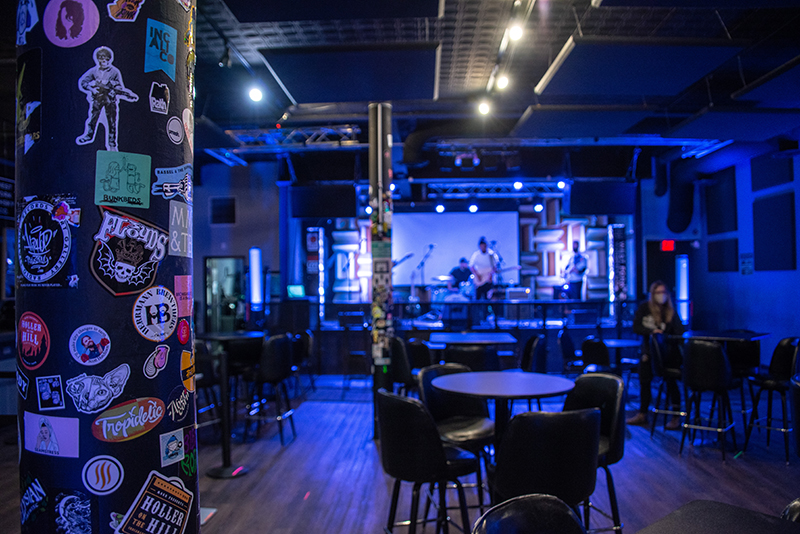
While precautions will vastly minimize the risk, it will still be there — just like the regular seasonal flu. “It’s about making the audience feel safe, and them seeing what you’re doing to create as safe of an environment as possible,” he says. Some of the technologies Dodd is working on leads to slightly comical situations. In discussions with the owner of Indianapolis’ famous Jazz Kitchen venue, they had the proper units going. Sitting at a table, not only did they notice the air was clean but … was it too clean? Suddenly that “stale beer/smoky carpet” smell was gone. “We did a presentation for independent venue managers and owners, and we were laughing about it.” Ambiance lost? “This is a very real conversation to have.”
Again, Dodd urges that we all need to make our own way. “Right now, all your local health officials are making policy while drinking out of a fire hose,” he states, bluntly. “They are inundated. It is up to us to build processes and procedures that make sense for our business if we want to reopen. We’re going to need to help officials understand how our industry plans to handle safety and sanitation for our customers, while also holding us all accountable.”
